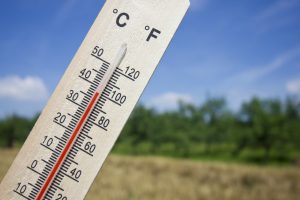 Kidney stones and chronic kidney disease risk may increase with high temperatures. As warmer weather is upon us, the risk of kidney stones is rising, according to research. Researchers found that kidney stone cases are on the rise when the temperatures are hot. They uncovered this association by examining 60,000 Americans in several U.S. cities.
Kidney stones and chronic kidney disease risk may increase with high temperatures. As warmer weather is upon us, the risk of kidney stones is rising, according to research. Researchers found that kidney stone cases are on the rise when the temperatures are hot. They uncovered this association by examining 60,000 Americans in several U.S. cities.
Study lead Gregory E. Tasian said, “We found that as daily temperatures rise, there is a rapid increase in the probability of patients presenting over the next 20 days with kidney stones.”
Advertisement
The researchers analyzed medical records from over 60,000 Americans with kidney stones between 2005 and 2011. The researchers found that when the temperature rose above 50 F (10 C), the risk of kidney stones increased in all the cities the researchers looked at except for Los Angeles.
Tasian added, “These findings point to potential public health effects associated with global climate change. However, although 11 percent of the U.S. population has had kidney stones, most people have not. It is likely that higher temperatures increase the risk of kidney stones in those people predisposed to stone formation.”
The link between kidney stone risk and higher temperatures could be a result of a higher risk of dehydration, which is a known risk factor for kidney stones.
On the other hand, the researchers found low outdoor temperatures in Atlanta, Chicago, and Philadelphia also contributed to kidney stones, as people stay indoors where the temperature is hotter, eat unhealthier, and partake in less physical activity.
The broader implications of the study reveal that with global warming on the rise researchers may be able to predict kidney stone rates. “Kidney stone prevalence has already been on the rise over the last 30 years, and we can expect this trend to continue, both in greater numbers and over a broader geographic area, as daily temperatures increase. With some experts predicting that extreme temperatures will become the norm in 30 years, children will bear the brunt of climate change,” Tasian concluded.
Chronic kidney disease causes greater harm with rising temperatures
Advertisement
An alternative study has found that the risk of kidney damage in chronic kidney disease increases with rising temperatures. The researchers looked at global data and found that heat stress-related chronic kidney disease is on the rise in rural areas in hotter regions.
Heat stress-related chronic kidney disease is on the rise due to global warming, and with the increase in heat waves, heat stress-related chronic kidney disease can be seen among those who work outdoors – agricultural workers, for example.
A decrease in rain, too, can be to blame for the increase in chronic disease cases due to reduced water supply and quality.
